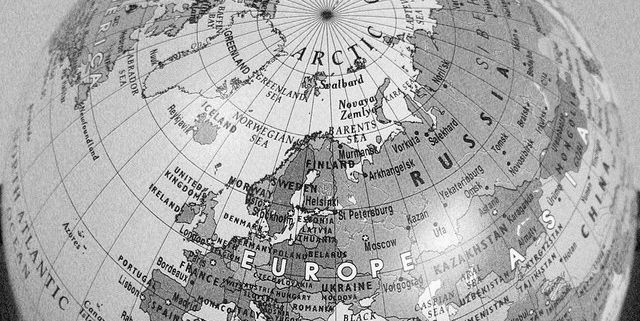Can we pick our moment for talking about Europe?
Last month, I had the pleasure to chair a session on Europe’s progressive ambitions at the Fabian Europe Conference. Many important points were made during this debate, so many that I often tend to forget about half of them, but...
Last month, I had the pleasure to chair a session on Europe’s progressive ambitions at the Fabian Europe Conference. Many important points were made during this debate, so many that I often tend to forget about half of them, but one has really stuck with me. Marcus Roberts, deputy general secretary at the Fabian Society, spoke passionately about Europe’s potential and the need to have a debate about its reform, but warned that Labour needed to choose the right moment to have this debate. At the moment, the economy was the main problem, and Labour should focus on that.
This reflects pretty much the sentiment expressed in Douglas Alexander’s speech earlier in the day, and to a certain degree, I agree with that statement. However, I do not think that we are lucky enough to have the luxury of choosing the moment. The cracks in the European Union are becoming larger in front of our eyes. The moment to talk about its future is being imposed on us, and Labour cannot ignore that.
Mine is, of course, not the typical UK perspective. I grew up in Germany with a French mother and a German father. On the continent, we see the European Union very differently from how it is seen in the UK. The EU is not about fish quotas, rigid institutions or even the single market, (although these things are of concern there too), but rather it is about sharing a common cultural heritage, the opportunity to study and live and 27 countries and most of all, about ending conflict and creating lasting peace. To those born after 1945, the idea or war between France and Germany or anywhere else within Western Europe was simply unimaginable for the majority of the last 65 years. But the mood on the continent is changing.
A recent survey by the liberal Austrian newspaper Der Standard has shown that people are more and more disillusioned with democracy and somewhat nostalgic about the times after the ‘Anschluss‘, the annexation of Austria by the Hitler Regime in 1938. 54 per cent believed that the extremist right wing NSDAP would stand chances at the next general election, 61 per cent wanted a “strong man” to lead Austria, 57 per cent were in favour of denying immigrants state benefits. In Hungary, the extremist right wing party Jobbik has demanded a list of Jews living in Hungary, and although the Hungarian government has distanced itself strongly from Jobbik, it is trying to win their supporters through increased nationalistic rhetoric. The anti-European, anti-immigration right wing candidate Marine LePen won a shocking 17 per cent at last year’s French presidential election. And I haven’t even mentioned Greece.
I’m not the only one who is worried. Belgium’s former prime minister Jean-Claude Juncker recently expressed his concern that people might take enduring peace in Europe for granted. Resentments that were thought to be dead were emerging again. “The demons aren’t dead” he warned, “they are only sleeping.”
Europe’s foundations are crumbling, and although many on the continent are already anxiously debating the possibility of a ‘Brexit’ (British exit), leaving the EU would be the wrong sign at the worst of times. What Europe needs is a vote of confidence, not one of its key members jumping ship. The continent isn’t only watching the government; it is also watching the opposition. Postponing a debate that is bound to bring up straight bananas and the myth of the almighty Brussels machinery is inviting, but we just cannot afford to sit on the fences on this. Voters will want to know where we stand on this, and so does the rest of Europe.
Polling numbers could, of course, explain Labour’s desire to postpone this debate. According to a recent YouGov poll, taken in February after Cameron’s referendum pledge, 41 per cent would vote to leave Europe at the next election, 38 per cent would opt to stay in, whilst 15 per cent were undecided. Only 5 per cent would choose not to vote. Whilst this looks bad for pro-Europeans, their numbers are up from a poll taken in November, which saw 51 per cent in favour of an exit and only 30 per cent wishing to remain in the EU.
Labour can make and win the case for Europe. Any debate must be open and honest; of course there is need for reform, there always is. But let’s to be more outspoken, more enthusiastic about the merits of Europe, let’s stop referring to the continent as “the others”. Let us talk about the difference the UK can make as one of the few countries who has, so far, always managed to fight of any extremist threat to its democracy. Most of all, we need to get rid of the myth that, should Britain decide to leave the EU or opt for a ‘Europe light’, it would somehow be able to remain a key player. It won’t.
We cannot choose the right moment to have this debate. If Europe wants to fulfil any of its progressive ambitions, a united Europe must first of all still exist. And if Labour wins the next election, Britain can play a significant part in holding Europe’s future together.
